June 8, 2025 | 19:50 GMT +7
June 8, 2025 | 19:50 GMT +7
Hotline: 0913.378.918
June 8, 2025 | 19:50 GMT +7
Hotline: 0913.378.918
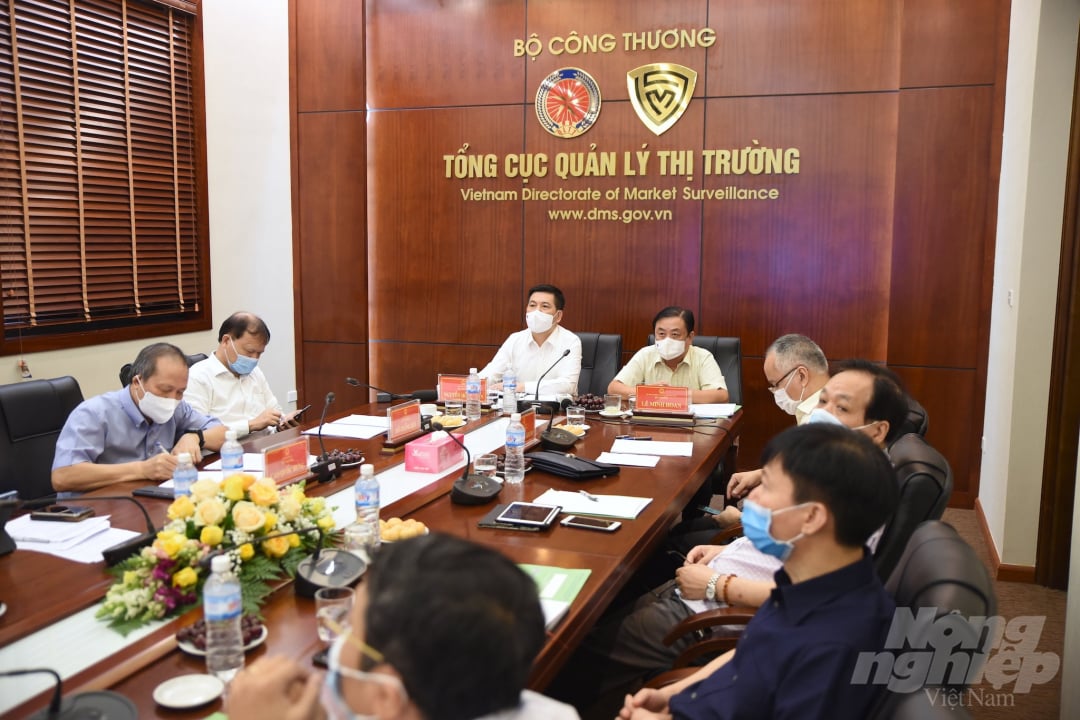
Minister Le Minh Hoan and Minister Nguyen Hong Dien at an online meeting with bridge points nationwide.
“The quantity of commodities required to provide individuals living in social distancing areas following Directive 16 is very large, as is the number of quarantined people in an unprecedented scenario. As a consequence, the MoIT and MARD convened an emergency meeting to reallocate the responsibilities of the two sectors to prevent a commodities supply deficit for the populace”, MoIT Minister Nguyen Hong Dien said.
Before this, the Minister established a Working Group to ensure the availability of basic commodities in Ho Chi Minh City and the southern regions.
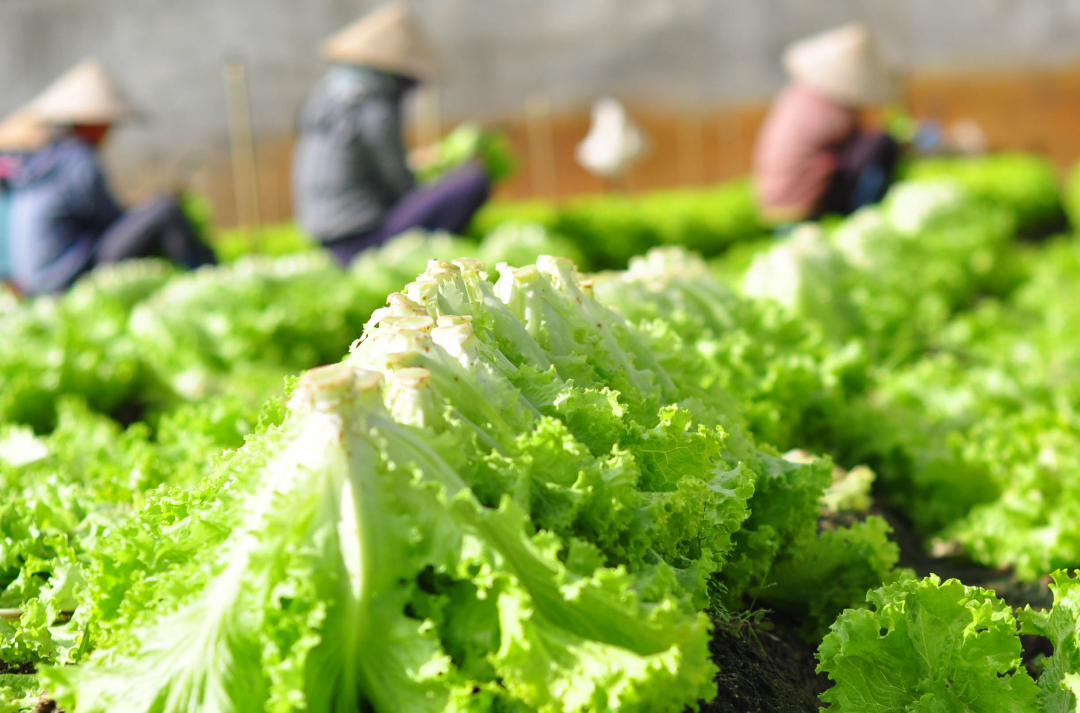
The number of vegetables in Da Lat (Lam Dong) to Ho Chi Minh City decreased by half compared to the time before Ho Chi Minh City implements Directive 16.
Additionally, the Ministry of Industry and Trade proposes that Ho Chi Minh City and southern provinces restore their historic markets under three conditions:
- First and foremost, selling only necessary products such as vegetables and fruits, as well as fresh produce that people need regularly;
- Second, rigorously enforce epidemic prevention measures to guarantee safety, such as 5K (facial mask; hygiene; safe distance; gathering; health declaration), alternative ballot distribution, and maintaining a safe distance between booths...
- Third, vaccine conventional marketplaces' small companies.
According to Bui Ta Hoang Vu, director of Ho Chi Minh City's Department of Industry and Trade, the supply of products has been disrupted due to the suspension of key transit hubs such as wholesale markets and traditional markets.
As a result, before adopting Directive 16, Ho Chi Minh City required about 7,000 tons of vegetables, fruits, and fresh food daily. However, when the three wholesale marketplaces ceased operations briefly to avert a pandemic, this activity encountered many problems. In comparison to the population's requirements, there is a food deficit of about 1,000 tons of vegetables and fruits, as well as fresh food, excluding processed and dry goods.
Southern towns commented on the present state of the economy, the hardships, and suggestions to enhance the movement of commodities through other virtual bridge points.
Around 70% of products sold in wholesale marketplaces are not intended for the inhabitants of the Metropolis, but rather for other suburbs and provinces in the area, ensuring that they retain their international worth. Traditional markets can only react to around 40% to 50% of HCMC's fresh buying power; the remainder is accounted for by convenience shops. He suggested protecting producing regions, stating that they cannot allow the scenario of farmers being prohibited from leaving their houses to wreak havoc on supplies. This results in a price rise. Proposing locations where the outbreak may be effectively prevented and controlled without impairing the supply of products. He said that the city is running out of eggs at a rate of 3 million per day.

From 6:30 am on July 18, some traditional markets have been reopened to meet people's needs.
According to the Minister of MoIT Nguyen Hong Dien, the supply of products has been severely harmed after seven days of social distancing in Ho Chi Minh City, Binh Duong, and Dong Nai. At times, consumers were outraged because products could not be provided on time due to wholesale marketplaces being shuttered and just supermarkets and convenience shops being open. However, just 2,000 individuals have worked at convenience shops and supermarkets in the last several days. The peri-urban regions around Ho Chi Minh City enforced the distance, resulting in a severe labor shortage and disruption.
The wholesale market is the lifeblood of the suburbs' residents, but when they shut, tens of thousands of people are impacted. On July 18, around 6:30 a.m., the city reopened many traditional marketplaces. Small company owners are ecstatic.
The restoration of wholesale markets must be conditional. Epidemic prevention in markets is more convenient than at supermarkets if 5K procedures such as routine disinfection, immunization, and testing are used for small enterprises.
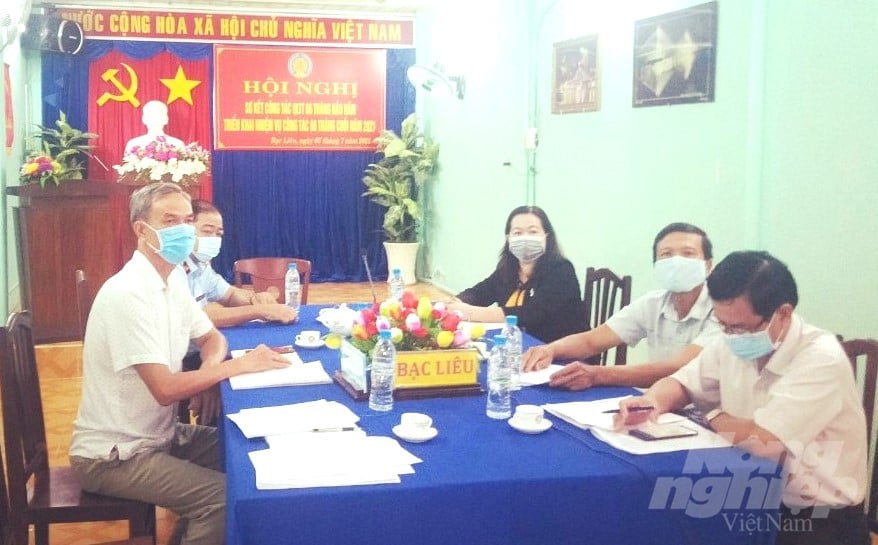
Bridge point in Bac Lieu.
According to Bac Lieu, the price of shrimp has risen to an average of VND 25,000 per kilogram, while the price of rice has decreased somewhat from VND 100 to 200 per kilogram.
Hau Giang stated that although the price of necessary agricultural goods rose by 30%-40%, the price paid by the populace remained the same. Transporting agricultural goods is challenging due to the control work required at the quarantine gate, which adds time, increases the risk of damage, and increases the selling price. The province recommended that the health sector provide more advantageous circumstances and processes for the transportation and circulation of products through automobiles.
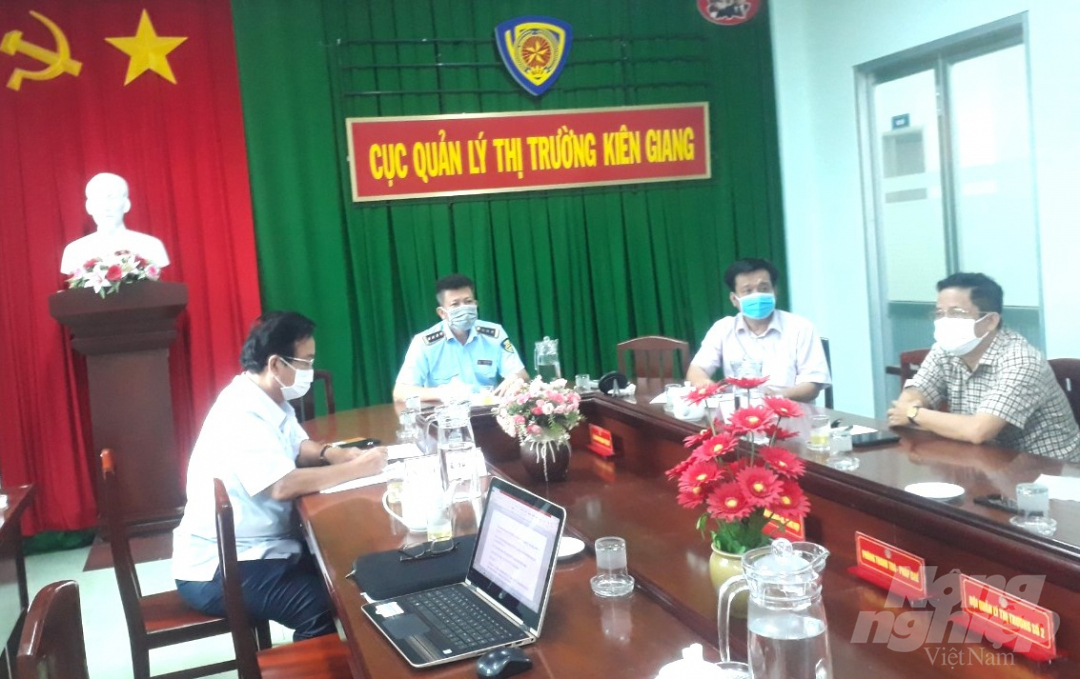
Bridge point in Kien Giang.
When necessary, Kien Giang is prepared to provide products to neighboring regional municipalities as it has vast rice and fisheries resources
Ca Mau stated that the local fish is plentiful but veggies are few.
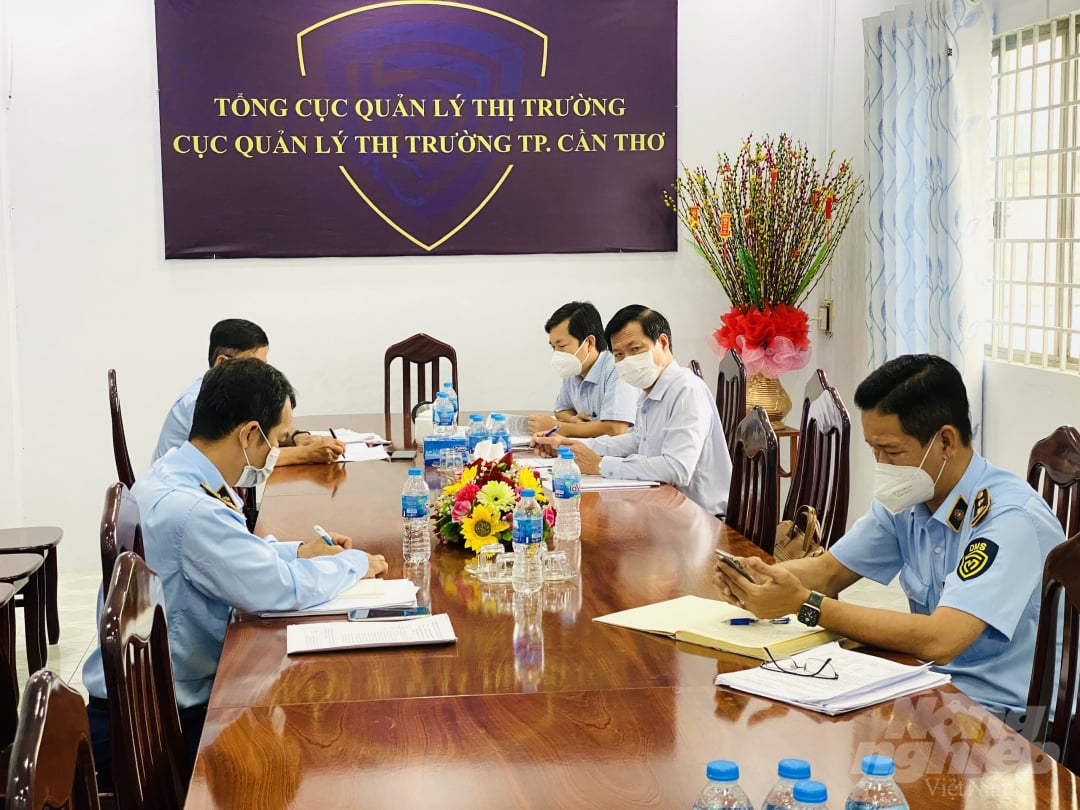
Bridge point in Can Tho.
Can Tho said that the harvest season for rice, vegetables, and aquatic goods has begun. However, as a result of the implementation of Directive 16, agricultural product consumption is sluggish and, more importantly, agricultural product supply to the HCMC market is restricted.
Ba Ria - Vung Tau highlighted two major challenges: the volume of people's purchases is excessive, resulting in inadequate supply, and some products cannot be manufactured in the province and must be imported from another. Circulation and transportation difficulties result in high costs.
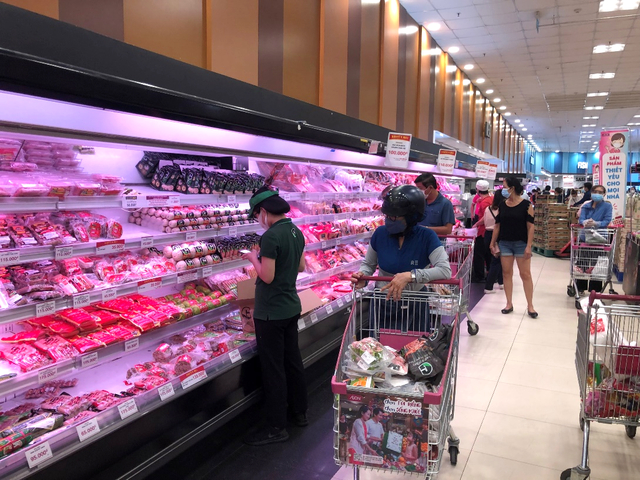
Minister of MARD Le Minh Hoan demanded Ho Chi Minh City clarify the consumption demands. Illustrative photo.
According to Vinh Long – Ben Tre, the situation in both provinces has been very similar since the adoption of Directive 16. This is because people are fearful of the pandemic, which has resulted in a reduction in the sale of necessary items, and goods are limited locally.
Binh Duong, Hau Giang, and An Giang suggested untying transportation bottlenecks. According to officials of these provinces' Departments of Industry and Trade, freight transportation is crowded. As a result, they recommended that the health sector eliminate control problems and that the government provides vaccinations to eliminate barriers to commercial labor disruption.
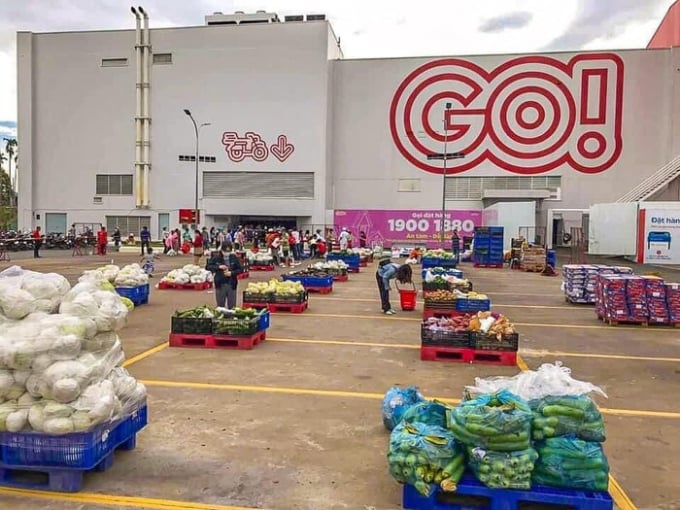
One of the creative distributions of Can Tho is bringing products to the outdoor space for people to pick.
Ho Chi Minh City and Dong Nai have requested price regulation and the avoidance of speculation. Since the implementation of Directive 16, Ho Chi Minh City's Market Management Department has increased its forces 100 percent to grasp the situation and cooperate with functional forces to apprehend smuggling and instances of commodities hoarding. Additionally, the unit advocated with conventional markets, supermarkets, and retailers to get a promise not to raise prices and to foster advantageous circumstances for the supply of products to the general public.
A spokesman of the Dong Nai Market Management Department, who shared the same perspective, said that the Department has also urged supermarkets and businesses to commit to selling at the appropriate price, openly displaying pricing, selling adequate food in 1-3 days, and avoiding speculating.
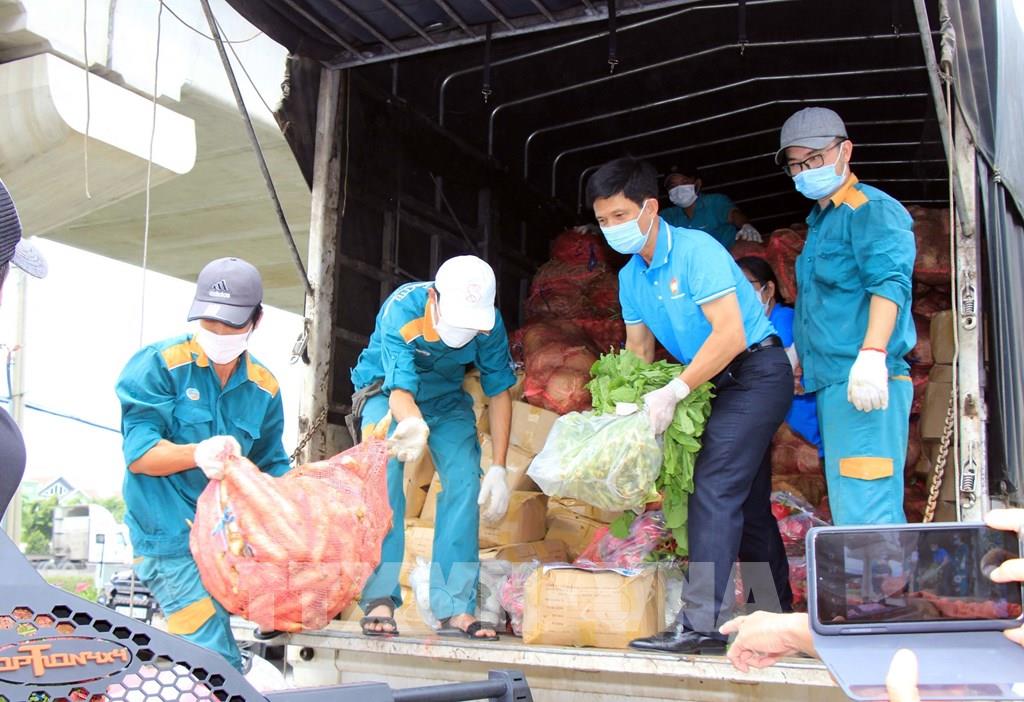
Loading and unloading vegetables and fruits for timely transportation to distribution points in Ho Chi Minh City. Photo: VNA.
The situation Is likely to undergo significant change in the coming time as a result of the uncertainty and intensity of the Covid-19 pandemic. Commodity supply is constrained, making it challenging. “This is a wartime situation,” Minister of Industry and Trade Nguyen Hong Dien emphasized.
The social distance order under Directive 16 is not the first time to be adopted; nevertheless, it is necessary to emphasize that the present situation is much different than in the past. The pandemic may spread more rapidly, disrupting the supply chain for commodities such as food and medication and impeding their delivery.
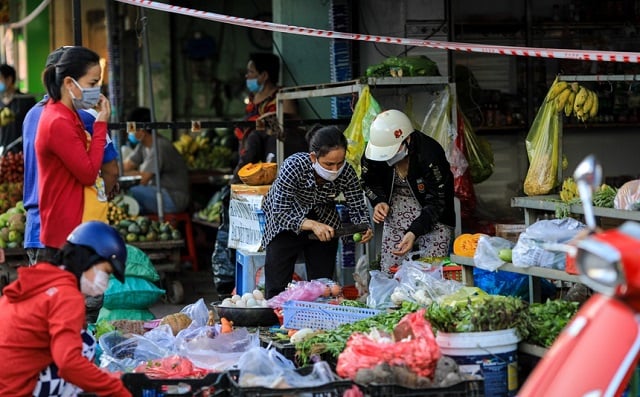
Minister of MoIT proposed to promptly handle the phenomenon of hoarding, raising prices, profiteering, and counterfeiting.
He stated that the two industries of agriculture and rural development, as well as industry and trade, must collaborate to accomplish six tasks, including accurately assessing the general demand for commodities, developing scenarios for further complicated siting at the highest level, in which the government will supply goods to localities on an unconditional basis; proactively connecting supply and demand among localities.
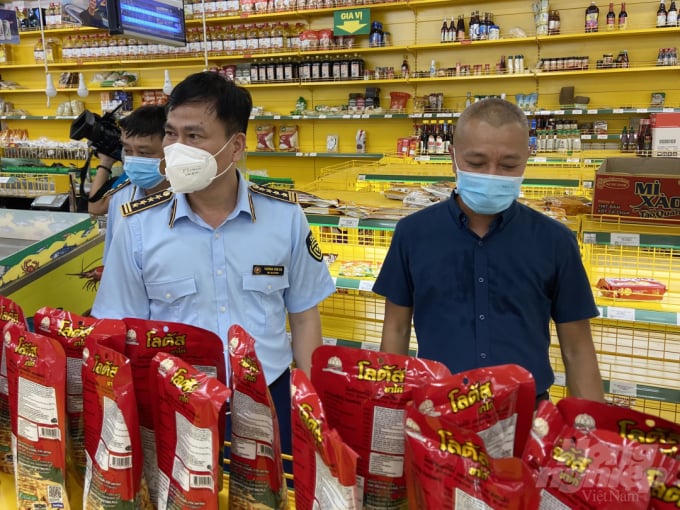
Director of the HCM City Market Management Department Truong Van Ba inspects at Bach Hoa Xanh store on Dang Van Bi Street, Thu Duc city. Photo: Luynh Bien.
At the meeting, the Minister of MARD Le Minh Hoan urged Ho Chi Minh City to precisely identify local consumption needs, while exploring ways to partially restore the commodity distribution system.
"Localities must be accountable to Ho Chi Minh City for food supply, but Ho Chi Minh City must also define its requirements since many companies now want to provide but are unsure where to deliver," the Minister said.
Additionally, the Minister suggested a variety of measures to alleviate the present difficulty in providing products to the populace. As a result, the Minister advises the following:
- To ensure that local governments have the most up-to-date information possible, the Departments of Industry and Trade and Agriculture and Rural Development must cooperate and visit raw material regions to gather information.
- At the moment, areas with raw materials need to understand the harvesting challenges to react appropriately to the Steering Committee for the Supply of Goods to Ho Chi Minh City and the southern provinces.
- When it comes to transportation, companies are fearful of risks, which is why they must have a highly open policy to avoid disrupting the supply chain.
Current circumstances need government involvement in market operations; if more difficult, it may be necessary for the government to act as a distributor and supplier.
- MoIT creates a domestic market strategy, which is critical in the current environment.
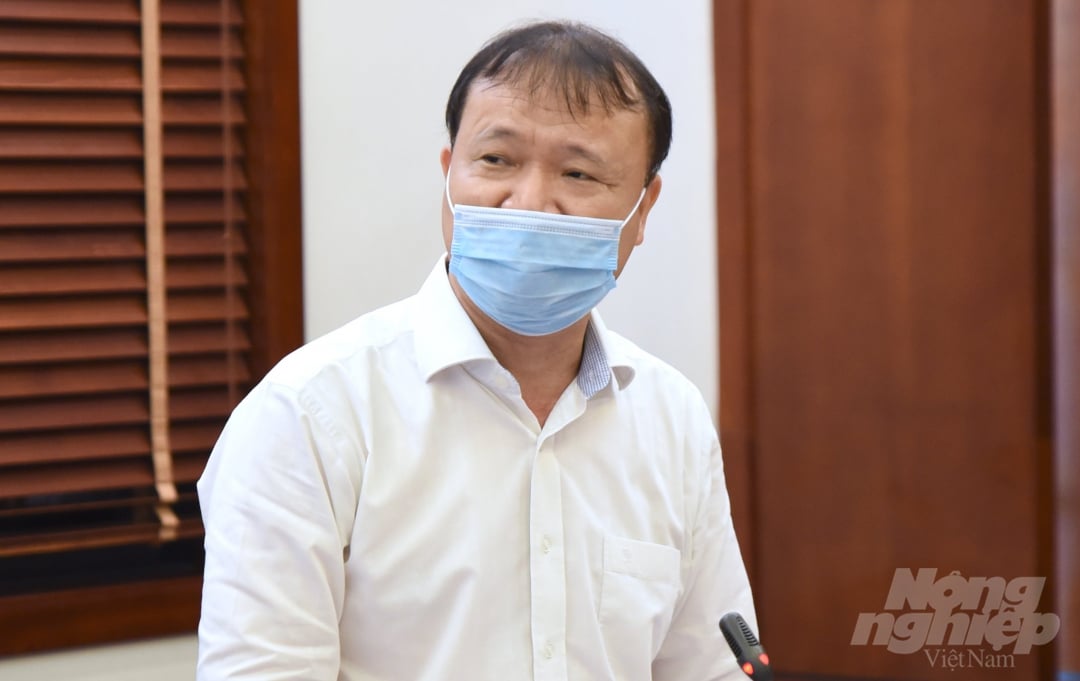
Deputy Minister of Industry and Trade Do Thang Hai, Head of the Steering Committee for the supply of goods to Ho Chi Minh City and the southern provinces.
Although Ho Chi Minh City has expertise in combating the pandemic, 16 provinces have recently implemented Directive 16, which means the scenario will alter every hour.
The wholesale marketplaces in Ho Chi Minh City shut down, creating a scarcity of products and putting neighboring regions at risk owing to a lack of production and supply.
Close all wholesale and traditional marketplaces in 16 provinces that recently implemented Directive 16.
Deputy Minister Do Thang Hai also suggested to "completely execute pandemic preventive measures; expand sales hours at supermarkets and commercial hubs; boost mobile selling stations."
Translated by Linh Linh
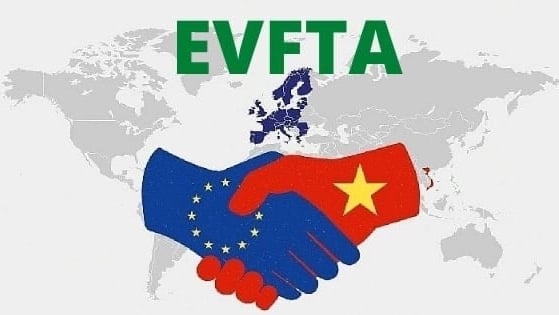
(VAN) The benefits brought by the EVFTA are particularly significant, as the EU has consistently been one of Vietnam's four largest export markets for agricultural, forestry, and fishery products.
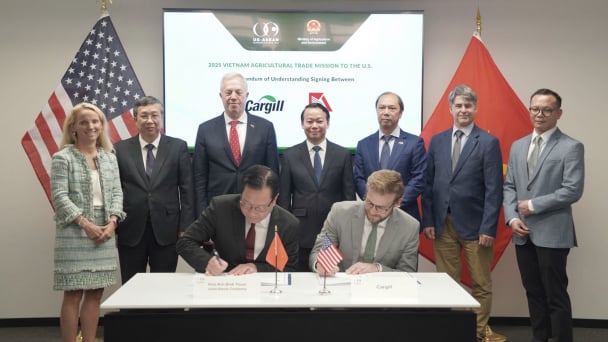
(VAN) Vietnam agribusinesses accompanying Minister Do Duc Duy signed agreements worth $1.1 billion, raising the total number of MOUs during the trip to 20, with a combined value approaching $3 billion.
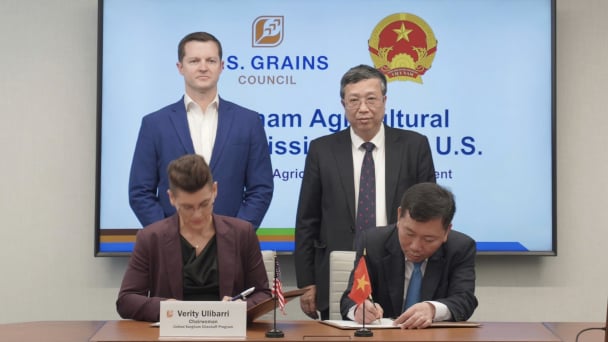
(VAN) The U.S. Grains Council signed a 5-year cooperation agreement with the Partnership for Sustainable Agriculture in Vietnam (PSAV) during MAE's agricultural trade mission.
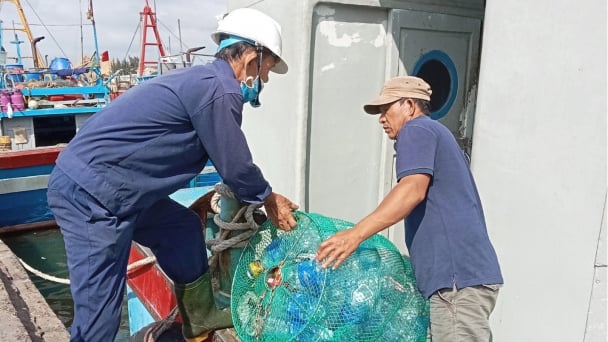
(VAN) Vietnam Agriculture and Nature News interviewed Mr. Vu Thai Truong, Acting Head of Climate Change and Environment at UNDP Vietnam on the occasion of World Environment Day (June 5).

(VAN) On June 5, Deputy Minister of Agriculture and Environment Phung Duc Tien held a working session with the Directorate-General for Maritime Affairs and Fisheries of the European Commission (DG MARE).
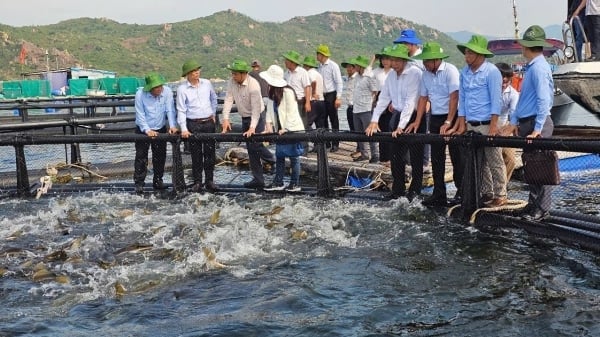
(VAN) According to Prof. Dr. Mai Trong Nhuan, former Director of Vietnam National University, Hanoi, the national ocean spatial plan is devised to guide the ocean economy toward achieving its key objectives.
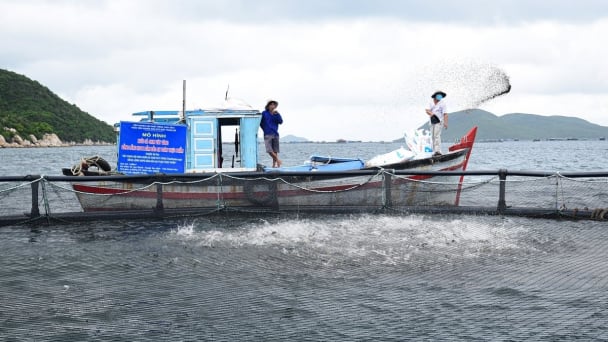
(VAN) Vietnam’s aquatic resources decreased from over 5 million tons in the period 2000-2005 to just over 3.9 million tons in the period 2016-2020.